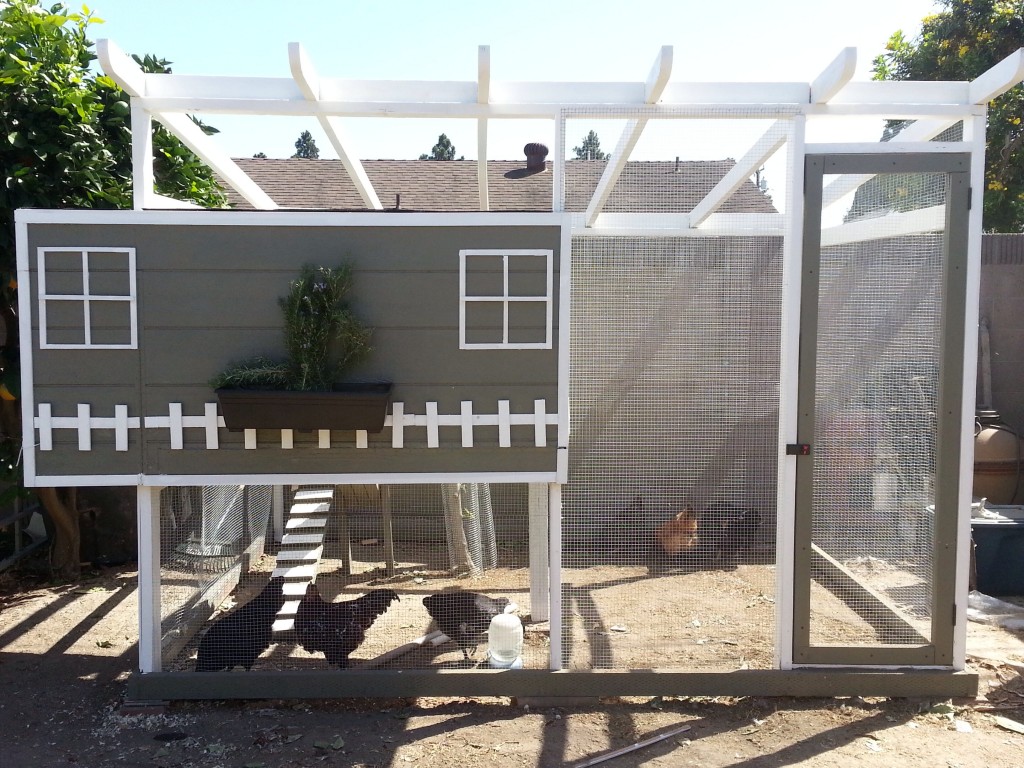
Chickens are easy and inexpensive to raise. There is great joy in being able to gather your own fresh, delicious, and nutritious eggs. Chickens provide chemical-free bug and weed control by feeding on the culprits. In turn, their byproducts make exceptional fertilizer. Their friendly and fun personalities make them fantastic pets. Chicken coops have been moving into urban and suburban backyards with gathering momentum due to the increased interest in organic food. Let’s take a look at getting started raising your own clucking companions.
Benefits of Raising Chickens
So why raise chickens in this day and age? Aren’t they just for farmers? Raising chickens is on the rise in urban and suburban America, actually. According to Mother Earth Living, hens are an increasing trend among natural gardeners. And why not? These new pets come with a lot of benefits, outside of just providing eggs instead of buying them at the store.
- They prevent garden pests. Chickens prevent bugs from getting into your garden and eating away at your flowers and shrubs. Bonus! They love to eat weeds as well, so you don’t have to spend hours pulling them up.
- They help the soil. Whether they’re digging into the soil or mixing manure and mulch, chickens are great sidekicks in keeping your garden soil healthy. You won’t need to pull out the rake or thatcher very often with these ladies on your side.
- They provide fertilizer. Chicken waste can be used for composting. This way, you don’t spend money on fertilizers at the local home improvement store. Their manure contains high levels of nitrogen, phosphorous and potassium.
- They’re good cleaners. If you own a vegetable garden or a fruit trees that need some cleanup, they will eat anything in site. Just make sure you pick everything you want ahead of time.
Ready to start your chicken enclosure?
Find ProsChicken Laws & Ordinances
Before you start making plans to raise chickens at your home, it is essential to check your local regulations and homeowner association rules. Within municipalities, there is a possibility that roosters may be banned. There may also be a limit on how many hens a household can keep. Depending on where you live, the community might require permits, an appearance before the zoning board, signed agreements from neighbors, and overall restrictions on outbuildings.
Chicken Coop
A coop provides a home for the chickens. A coop must provide protection from drafts, weather, temperature, and predators. If you aren’t sure about building the coop yourself, you should hire a carpenter to create the structure. Inside of the coop itself, there should be wooded boxes filled with straw. This will be the area where they lay eggs. A place to roost off of the ground is also needed. There should be at least two to four square feet per bird inside the coop and 4-5 square feet per bird in an outside run where they will get their exercise. Cover the floor of the coop with pine shavings to help prevent the spread of infestations of mites and lice.
Choosing Breeds
There are a variety of chicken breeds. Each has unique behavioral and physical characteristics that make them suitable for different environments. To ensure comfort and productivity, cultivate a flock back based on the climate they will be living in. Most breeds can be separated into two categories: Standard and Bantam. Standard chickens are larger, while Bantam chickens are about a quarter of their size, resulting in smaller eggs. Both types do absolutely fine in backyards if properly cared for.
Hatching Eggs
You can get hatching eggs from a local farm and feed store, online listings, and rare breed specialists. Even under ideal conditions, not every egg will hatch. The hatching rate of locally acquired eggs is 80%, while shipped eggs only hatch approximately 50% of the time. Most eggs should hatch in 21 days.
To hatch your own chicks you will need an incubator, a device used to keep the eggs warm as they grow within. Using a thermometer and a hygrometer is vital. Make sure your incubator is holding a steady temperature of 99.5-103 degrees. The incubator must also maintain an adequate level of moisture inside. You want 45-50% humidity for the first 18 days and then 65% for the last few days. A couple of paper cups or a pan filled with water will do wonders for sustaining a moist environment.
To help with turning the eggs, gently mark one side with an ‘O’ and the other with an ‘X’. Turning is essential during the first 14 days of incubation and should be continued until 3 days prior to the anticipated hatch day. It’s best to turn them at least three times a day and if more, always an odd amount.
How to Care for a Chick
A brooder is a heated house that will be home to the chicks. The size of the brooder is strictly dependent on how many chicks you have, but aim for at least 2.5 square feet per chick. There should always be a fresh layer of clean litter, such as pine shavings, on the ground. Placing paper towels over the wood shavings is recommended for very young chicks. Cleanliness is essential for baby chicks, as their immune systems are fragile at this age. Changing out the litter every couple of days is ideal, preventing it from ever becoming damp. Once the chicks reach the age of a month, adding a low roost around 4 inches off the ground is needed. This will help cultivate healthy roosting habits.
The brooder’s temperature should be 90-95 degrees for the first week and reduced by 5 degrees with each passing week, until the chicks have feathers. Most people use a light bulb with a reflector or a standard heat lamp to maintain proper temperature.
Fresh, clean water should always be available to your chicks. The waterer should be placed as far away as possible from the heater within your brooder. If you are using a bowl, filling it with clean pebbles or marbles will prevent the chicks from drowning or getting soaked. Chicks start out on a food called “crumbles”, which comes in medicated and non-medicated varieties. Maintaining proper cleanliness of their food dish is important, since chicks may poop in their food. Expect to be cleaning and refilling it often. After a week or two, you can offer treats to the chicks; just make sure to provide grit to help with breaking down the new food. Coarse sand works just as well if you can’t find chick-size grit.
Ready to start your chicken enclosure?
Find ProsGeneral Chicken Care and Feeding
Chicks will be moved into their coop soon after they have feathers. Chickens will provide for themselves by eating insects, slugs, sand, and seeds, but it is essential to also supply chicken feed for a well-balanced diet. If you are buying commercial feed, make sure it contains animal protein, as chickens are omnivores. Chickens are very disease-prone, so maintaining a clean environment will help reduce any medical issues. Remember to clean out their coop, run, feeder, and water on a regular basis. Tucking and locking the chickens into their coop before nightfall is recommended to avoid heightened predator activity.
 Home Gardening Guide for Your Family
Home Gardening Guide for Your Family  Test Your Lawn Before You Fertilize
Test Your Lawn Before You Fertilize  How to Hire a Gardener for Your Lawn and Garden
How to Hire a Gardener for Your Lawn and Garden  The Basics of Landscaping
The Basics of Landscaping  What Should I Do With My Shade Trees After a Storm?
What Should I Do With My Shade Trees After a Storm? 

I have always wanted to raise chicken ‘s This was a very good article about building your own chicken coop. Thanks for the information
What a brilliant article! I fear that a lot of people who are interested in raising their own chickens can be put off by the vast amount of information there is in this hobby. This is a brilliant guide that helps to simplify that down! Good job.
“Chickens are very disease-prone” – I consider this statement inaccurate. Based on my own experience (I’ve had chickens for going on ten years), they’re not any more disease-prone than any other outdoor pet. All animals are prone to disease if not cared for properly.
thank for great guide.
It would be really helpful to raise chickens in your home. For one, you can get eggs all the time and when they get old you can use their meat. I think you can save a lot of money and never really go hungry.